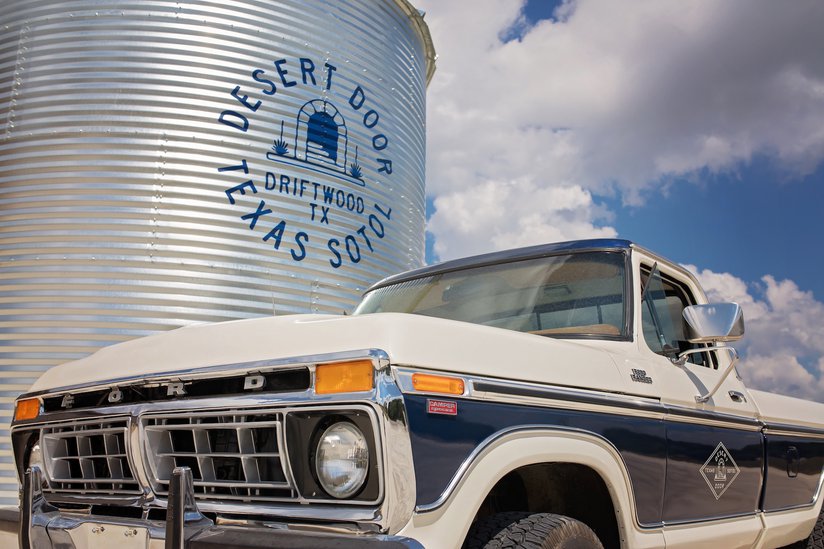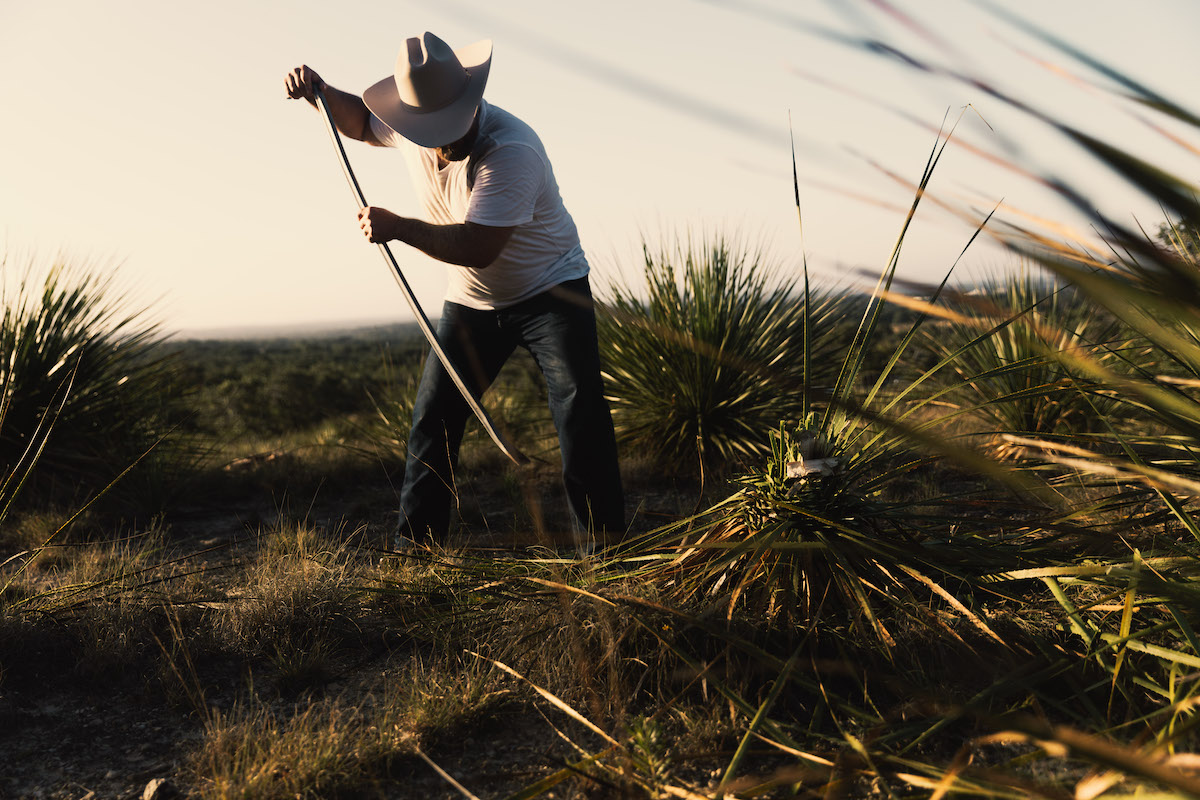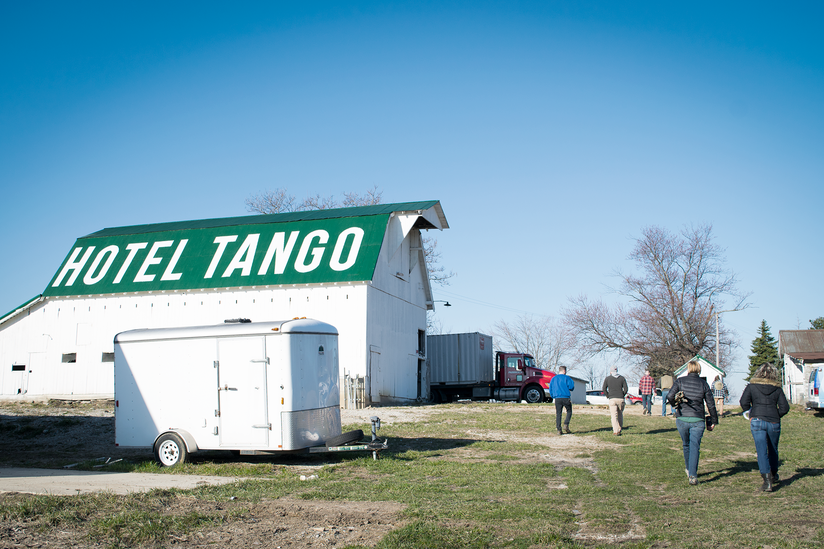Discussions about ways in which we can reduce our carbon footprint and better the environment have increased dramatically in recent years, and it’s having a visceral effect on the way businesses operate, as a whole. Perhaps one of the simplest ways to be more eco-minded — whether distillery, winery, brewery, or bar — is to source ingredients that are closer to home. This has a two-fold effect. First, it reduces the detrimental environmental impact of packing and shipping items a long distance, and second, it supports the local economy.
Sure, there’s a lot to be said for having access to an international variety of ingredients and products and sourcing the best of the best, but just because you’re sourcing from your backyard doesn’t necessarily mean you’re reducing quality or options. We reached out to an artisanal distillery/bar, a sotol distillery, and a winery/distillery/brewery to learn about why they’ve chosen to “go local” and how it’s impacted their business and their community.
Hotel Tango
Hotel Tango is a small, artisanal startup distillery, bar and restaurant that’s based in Indianapolis. Despite having limited resources and a limited budget, they’ve made a concerted effort to source locally whenever and however they can.
“Our cocktail menu features our spirit line that we distill in-house, as well as ingredients from across Indianapolis — from local kombucha to local cold brew,” says Katie Breden, marketing manager. “Sourcing local produce is much easier in the summer when we can easily add local peppers, tomatoes, and greens to our garnish spread, or prepare microgreen spirit infusions with microgreens from an urban farm in downtown Indianapolis.”
Even in the winter, though, they opt to source locally whenever possible. For example, their restaurant sources chips from a local potato chip maker, candles from a local maker who uses recycled bottles, and posters from a local printer. In addition, they’re in the early stages of partnering with a local farm to grow their own ingredients. Their goal is to eventually produce enough in their own “backyard” to supply not just their operation, but to supply to other local restaurants and food banks. They plan to break ground this April.
“While the environmental piece is critical, we believe it goes further than that,” says Breden. “Relationships among local producers strengthen a community, build trust, and ultimately contribute to a higher quality of life for the city and region as a whole. When you have so many positive working relationships right next door, you’re more likely to start new projects and initiatives that will benefit your local community.”
Environmentally speaking, Breden says that when buying from a local farmer down the street, that food travels a shorter distance and often uses less packaging than food shipped across the country. Indianapolis is home to many local producers and farmers who grow and produce in more environmentally sustainable ways, she says. The goal, then, is to support producers who not only make a great product, but make it in a responsible way.
 Desert Door Distillery. Photo by Allyson Campbell
Desert Door Distillery. Photo by Allyson Campbell
Desert Door
Texas-based Desert Door specializes exclusively in producing sotol, the lesser-known spirit relative to tequila. The distillery uses only three ingredients that are 100% sourced from within the state: wild-harvested sotol plants, organic yeast, and water. For their cocktail tasting room, they buy produce (including herbs and berries) from the nearby farmers’ market and strive to buy only Texas citrus. They also make their own sotol nectar, a cocktail sweetener, in-house.
“Selfishly, it just feels good to do it,” says Judson Kauffman, partner at the distillery. “When we buy our produce from the farmers’ market, or harvest our own plants, or make our own sweetener, we end up with a much deeper connection with our end product, which only makes us more passionate.”
There are, of course, “feel good” benefits, as well as environmental and community benefits, but Kauffman also makes the point that sourcing locally is good for their image with consumers. It’s an attractive business quality. And the truth is that there are people out there who care enough about supporting local business — and supporting businesses who support local businesses — that they’re willing to spend more.
“If you’re the CEO of a massive industrial farm, you might care about the environment and conservation,” says Kauffman. “But if you operate a small local farm, you definitely care about it. Humans care more for their own back yards than they do some place they’ve rarely, or never, visited.”
Five & 20 Spirits and Brewing
Sustainability and community impact are at the heart of family-owned Mazza Wines and Five & 20 Spirits and Brewing, a Chautauqua, New York-based company. It’s comprised of three wineries, and most recently a distillery and a brewery, and has been sourcing local product and ingredients for nearly half a century.
“For 45-plus years, we’ve worked with locally grown grapes for our wineries (Mazza Vineyards, South Shore Wine Company and Chautauqua Cellars) so sourcing local ingredients when we entered the craft spirits and beer business with Five & 20 Spirits and Brewing was a natural extension,” says Mario Mazza, general manager and co-founder. “We value the partnerships and long-term relationships that we have with our growers, ensuring that there is a viable outlet for their goods through our products.”
Mazza says that he grew up in the Lake Erie region but had the opportunity to live and work elsewhere in the USA and abroad before returning to his hometown. This experience of seeing the world fostered in him an even greater appreciation of his own backyard and the people who dwell there.
“Our little part of the world is beautiful thanks in large part to the agriculture, which is a major driver in the region, and I want to do my little part to ensure that those growers — my neighbors and friends — have a market,” Mazza says. “Sourcing local ingredients and buying from local brands works to reduce transportation costs, reducing our carbon footprint and, at the end of the day, just makes good business sense given that we are fortunate to be able to source so much of what we need from our local growers.”
Ultimately, they do their best to source from local companies who excel in eco-practices and sustainability. They’ve also recently embarked on a joint venture called Timberfish, which uses the byproduct from brewing and distilling (no longer a waste stream) to farm-raise fish on site. Overall, it is a way to offset the monoculture production of grain that drives much of the area’s agriculture, and is another way to support local business and give the community access to local fish options.






